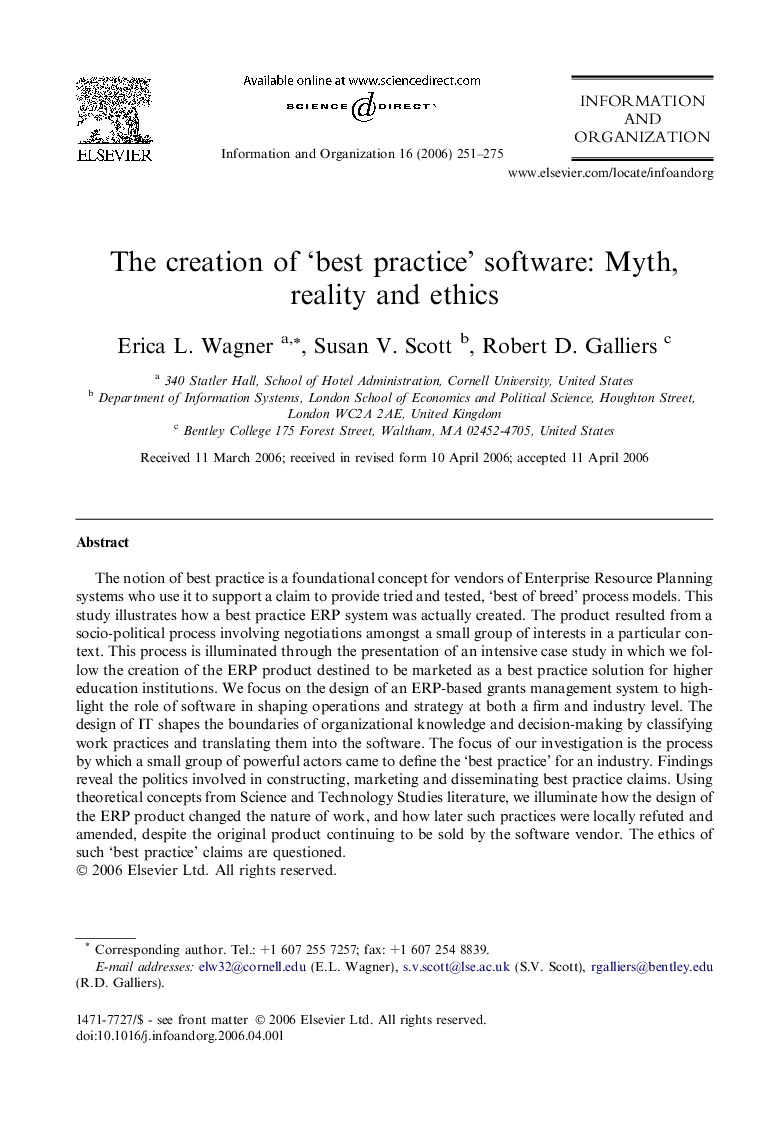| کد مقاله | کد نشریه | سال انتشار | مقاله انگلیسی | نسخه تمام متن |
|---|---|---|---|---|
| 554741 | 873877 | 2006 | 25 صفحه PDF | دانلود رایگان |

The notion of best practice is a foundational concept for vendors of Enterprise Resource Planning systems who use it to support a claim to provide tried and tested, ‘best of breed’ process models. This study illustrates how a best practice ERP system was actually created. The product resulted from a socio-political process involving negotiations amongst a small group of interests in a particular context. This process is illuminated through the presentation of an intensive case study in which we follow the creation of the ERP product destined to be marketed as a best practice solution for higher education institutions. We focus on the design of an ERP-based grants management system to highlight the role of software in shaping operations and strategy at both a firm and industry level. The design of IT shapes the boundaries of organizational knowledge and decision-making by classifying work practices and translating them into the software. The focus of our investigation is the process by which a small group of powerful actors came to define the ‘best practice’ for an industry. Findings reveal the politics involved in constructing, marketing and disseminating best practice claims. Using theoretical concepts from Science and Technology Studies literature, we illuminate how the design of the ERP product changed the nature of work, and how later such practices were locally refuted and amended, despite the original product continuing to be sold by the software vendor. The ethics of such ‘best practice’ claims are questioned.
Journal: Information and Organization - Volume 16, Issue 3, September 2006, Pages 251–275